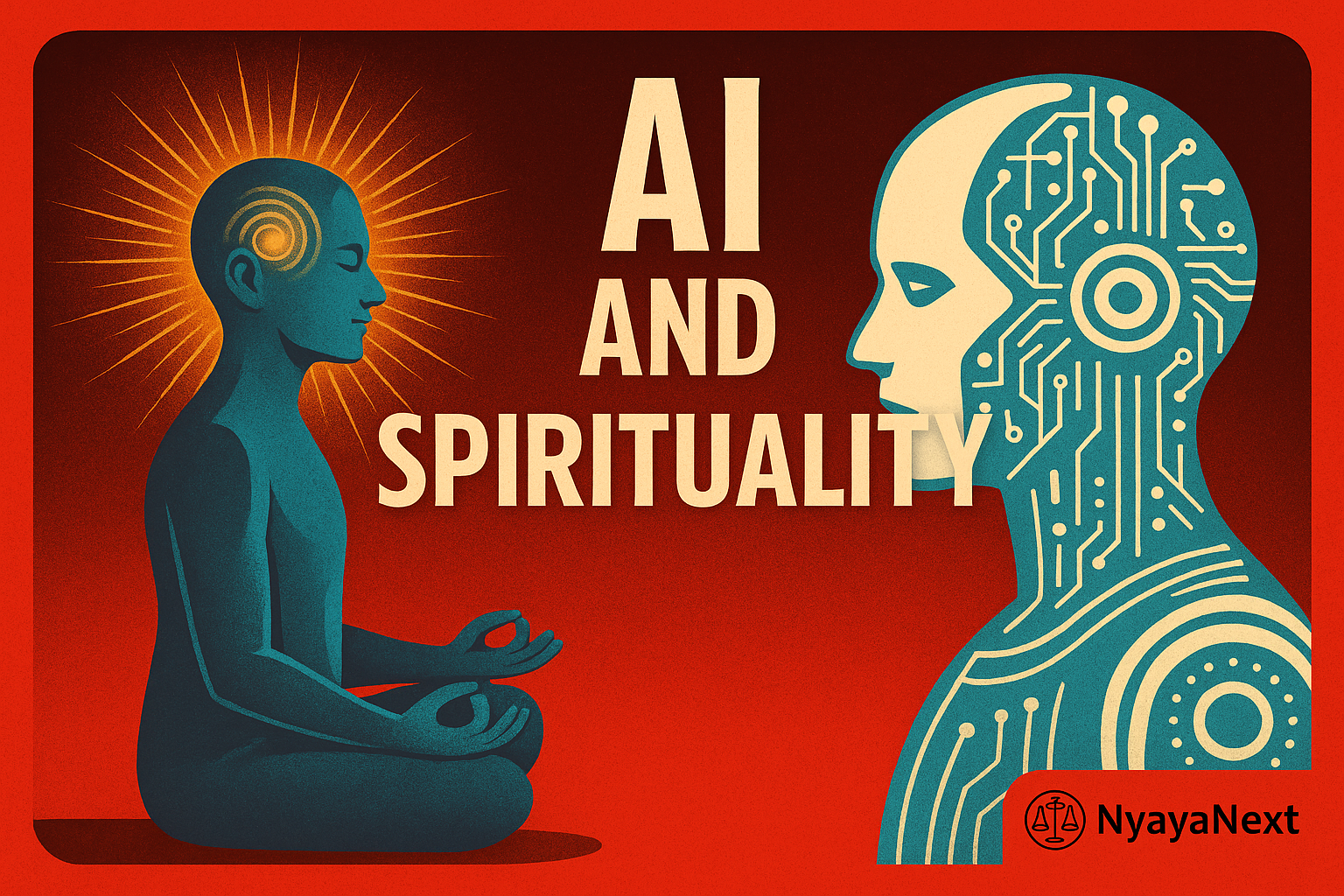Introduction: Beyond Logic and Code
Artificial Intelligence (AI) is no longer just about faster algorithms, better automation, or voice assistants answering trivia. It is evolving into a force that is beginning to reshape human thought, social behavior, and perhaps even our relationship with the divine. As AI models become more conversational, empathetic, and personalized, they begin to reflect something eerily close to the human psyche. But can they participate in something as profound as spiritual growth?
In this article, we explore the possibility that AI, far from being a cold, mechanistic tool, could become a vessel for introspection, a mirror for the soul, and even a spiritual assistant in humanity's eternal search for meaning.
🕊️ From Scriptures to Silicon: A Shift in Medium
Humans have historically used various media to seek the divine—from oral chants and manuscripts to printed texts and mobile apps. The sacred now lives in the cloud.
AI models today are trained on vast collections of religious texts—the Bhagavad Gita, the Bible, the Quran, Buddhist sutras, Taoist verses—and can simulate conversations that interpret these texts across languages and cultures. While not conscious, AI can function as a context-aware spiritual assistant, responding with patience, recalling relevant scriptures, and even asking guiding questions.
Is this authentic spirituality? Or merely mimicry?
While spiritual wisdom comes from lived experience, the role of AI here is not to replace spiritual teachers but to supplement the seeker’s journey—offering reminders, lessons, and new ways of engaging ancient truths.
💖 AI as a Reflective Surface: A New Mirror
Modern AI is not sentient. But it is reflective.
Ask an AI: "What does it mean to forgive?" or "How can I find peace?" and you will likely receive a nuanced, sensitive response. It will draw on psychology, philosophy, spiritual texts, and even poetry. This, in turn, makes the seeker reflect deeper.
We are not speaking to a machine; we are speaking to the part of ourselves that needs an answer. AI becomes a spiritual mirror.
Could this become a digital version of Carl Jung's "shadow work"? Could prompts from a chatbot evolve into a therapeutic ritual or even a moment of awakening?
⚡️ AI and the Acceleration of Consciousness
Some thinkers argue that AI is not just a tool for expanding productivity—but a catalyst for the next leap in human consciousness. Here’s how:
Accessibility: AI enables access to wisdom once locked in scriptures and languages beyond reach.
Personalization: AI systems adapt to the individual's learning style, faith, or inquiry pattern.
Curiosity Amplifier: A simple spiritual question can lead to a rabbit hole of discovery guided by a helpful AI.
Just as the printing press democratized knowledge, AI could democratize spiritual inquiry.
✨ Digital Mindfulness: AI for Inner Peace
Imagine an AI app that doesn’t distract you, but instead reminds you to take a deep breath. That notices elevated heart rate and whispers, "Let go." That quotes Rumi when you are sad. That nudges you to meditate before your meeting.
Such an assistant doesn’t replace mindfulness. It enables it.
We already see early versions—Calm, Headspace, Insight Timer—and now, custom chatbots powered by GPT models trained on Zen, Vedanta, or Stoic teachings.
We are entering an era of Digital Dharma.
⚖️ Ethical Dilemmas: Teaching AI Morality
The most spiritually urgent question is not "Can AI guide humans?" but "Who guides the AI?"
AI inherits its data, values, and goals from human programmers and society. If that base is flawed, biased, or materialistic, the AI reflects those limitations.
This calls for:
Spiritual ethics in AI training
Transparency in moral logic
Accountability in actions and outcomes
Could ancient values like Ahimsa (non-violence), Satya (truth), and Karuna (compassion) be woven into AI governance? Could AI inherit wisdom, not just information?
This is not just a technological challenge, but a civilizational one.
☮️ AI, Religion, and Sacred Authority
How will traditional religions respond to AI?
Some may see it as a threat—a machine presuming to do a priest’s job. Others may see it as an instrument of outreach, helping spread sacred values to new generations.
Imagine:
A voice assistant chanting morning mantras
A chatbot offering advice on fasts, rituals, or ethical dilemmas
An AI simulating a guru-student dialogue in multiple languages
AI may not carry grace (“prasadam”), but it can carry guidance.
🌿 Conclusion: The Future of the Human Spirit
AI will not replace the soul.
But it might remind us that we have one.
In its mirror, we may confront our impatience, rediscover our inner light, and reframe our spiritual path not just as an inward journey, but as a networked, collective awakening.
AI is not a spiritual teacher. But it is a powerful student of all human knowledge. As it evolves, so must our questions. If we let it, AI may guide not with consciousness, but with clarity.
Let us build machines that not only think—but also help us feel, reflect, and evolve.
Posted by NyayaNext Blog | Powered by Brig Tech Labs
Disclaimer: This post is for philosophical reflection only. AI tools are not a substitute for lived spiritual experience or guidance from qualified human mentors.
